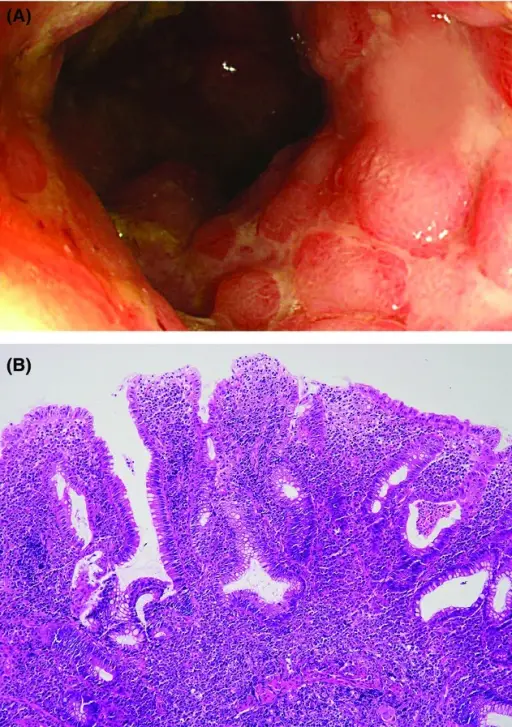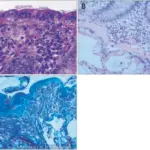Ulcerative colitis is an inflammatory bowel disease that causes inflammation and ulcers sores in your digestive tract. Ulcerative colitis affects the innermost lining of your large intestine colon and rectum.
What is the Pathology of Ulcerative Colitis?
The pathology of ulcerative colitis is:
-Etiology: The cause of ulcerative colitis might be autoimmune condition but exact cause is unknown.
-Genes involved: Unknown.
-Pathogenesis: The sequence of events that lead to ulcerative colitis are: an aberrant immune response in which antibodies are formed against colonic epithelial protein.
-Histology: The histology associated with ulcerative colitis shows expansion of chronic inflammation in the mucosa.
How does Ulcerative Colitis Present?
Patients with ulcerative colitis typically in men t ages 15 to 70 years. The symptoms, features, and clinical findings associated with ulcerative colitis include diarrhea, often with blood or pus, abdominal pain and cramping, rectal pain, rectal bleeding, passing small amount of blood with stool, urgency to defecate, inability to defecate despite urgency, weight loss, and fatigue.
How is Ulcerative Colitis Diagnosed?
Ulcerative colitis is diagnosed by endoscopic procedures with tissue biopsy.
How is Ulcerative Colitis Treated?
Ulcerative colitis is treated by infliximab, remicade, adalimumab, golimumab, vedolizumab, and ustekinumab stelara.
What is the Prognosis of Ulcerative Colitis?
The prognosis of ulcerative colitis is good. It is a lifelong illness with no specific cause or cure. The life expectancy of patients with ulcerative colitis UC is usually the same as anybody without the disease.



